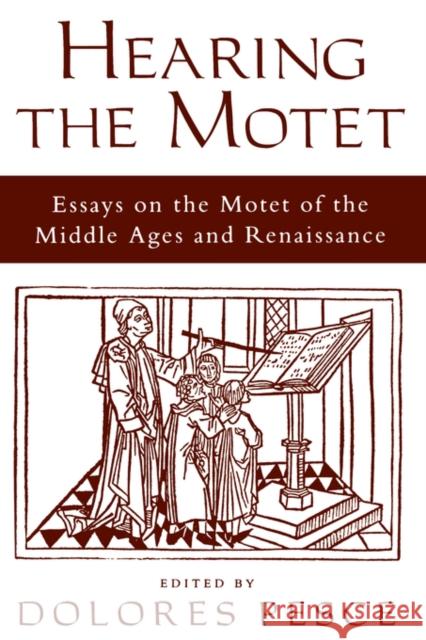Hearing the Motet: Essays on the Motet of the Middle Ages and Renaissance » książka
Hearing the Motet: Essays on the Motet of the Middle Ages and Renaissance
ISBN-13: 9780195129052 / Angielski / Miękka / 1998 / 392 str.
The motet was unquestionably one of the most important vocal genres from its inception in late twelfth-century Paris through the Counter-Reformation and beyond. Heard in both sacred and secular contexts, the motet of the Middle Ages and Renaissance incorporated a striking wealth of meaning, its verbal textures dense with literary, social, philosophic, and religious reference. In Hearing the Motet, top scholars in the field provide the fullest picture yet of the motet's "music-poetic" nature, investigating the virtuosic interplay of music and text that distinguished some of the genre's finest work and reading individual motets and motet repertories in ways that illuminate their historical and cultural backgrounds.
How were motets heard in their own time? Did the same motet mean different things to different audiences? To explore these questions, the contributors go beyond traditional musicological methods, at times invoking approaches used in recent literary criticism. Providing as well a cutting-edge look at performance questions and works by composers such as Josquin, Willaert, Obrecht, Byrd, and Palestrina, the book draws a valuable new portrait of the motet composer. Here, intriguingly, the motet composer emerges as a "reader" of the surrounding culture--a musician who knew liturgical practice as well as biblical literature and its exegetical traditions, who moved in social contexts such as humanist gatherings, who understood numerical symbolism and classical allusion, who wrote subtle memorie for patrons, and who found musical models to emulate and distort. Fresh, broad-ranging, and unique, Hearing the Motet makes vital reading for scholars, performers, and students of medieval and Renaissance music, and anyone else with an interest in the musical culture of these periods. Contributors include Rebecca A. Baltzer, Margaret Bent, M. Jennifer Bloxam, David Crook, James Haar, Paula Higgins, Joseph Kerman, Patrick Macey, Craig Monson, Robert Nosow, Jessie Ann Owens, Dolores Pesce, Joshua Rifkin, Anne Walters Robertson, Richard Sherr, and Rob C. Wegman.










